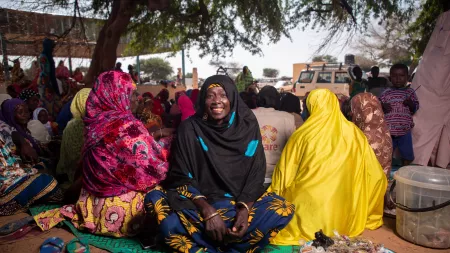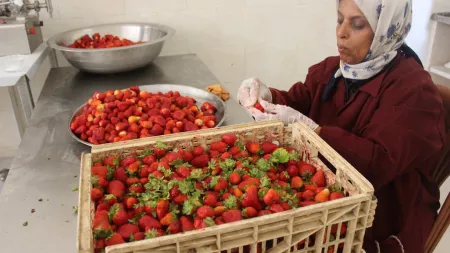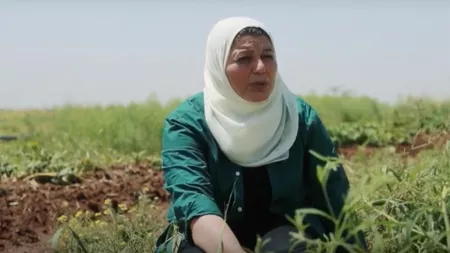Economic justice in fragile or conflict-affected contexts
When communities are affected by crises, it is harder for people, in particular women and girls, to reach their full potential and realize their human rights. Insecurity drives people further into poverty as markets, livelihoods, and investments are disrupted, while disasters and displacement impact lives and economic productivity.
Underlining the urgency of this issue is the OECD’s prediction that 60% of the world’s poor will live in a fragile or conflict-affected state by 2030.
In times of crisis, women often end up with greater economic responsibility for the household, which is why economists sometimes describe women as economic ‘shock absorbers’. By strengthening women’s economic status, we can increase their resilience to shocks.
Crises can transform gender dynamics, meaning that both risks and opportunities can appear. This includes entry points for gender transformative programming.
Since the beginning of the COVID-19 pandemic, we have seen the immense resilience of women—adapting their businesses, adopting technology, and supporting their communities in response to the health crisis. Despite these breakthroughs, barriers to women’s economic justice remain widespread and deeply rooted in the prevailing legal and political structures, social norms, and market systems.
What is CARE International doing to help rebuild livelihoods in emergencies?
CARE International works at the nexus of life-saving humanitarian assistance and development programming. We have growing experience in terms of adapting our women’s economic justice programming in fragile and complex contexts to support some of the most marginalized and vulnerable, including specific approaches for women entrepreneurs.
We will continue to use and scale-up market-based approaches that build resilience. CARE International is already working to expand our Village Savings and Loans Associations in our emergencies work, which provides a significant opportunity to both promote women’s leadership and contribute to life-saving response and protection.
One of the best ways to help people get back on their feet after a disaster is to support them to start earning an income. When appropriate, we give cash grants to people affected by disasters so that they can purchase basic supplies and use the money to get their livelihood back on track.
We also give specific support to rebuild livelihoods such as:
- Helping small-scale farmers and agricultural producers in Palestine (West Bank and Gaza) to rehabilitate their land and irrigation systems after the 2014 conflict to enable them to resume food production while supporting women entrepreneurs to to restart their businesses in small-scale production, manufacture and retail.
- Assisting more than 50,000 people in South Sudan with fishing kits, vegetable seed kits and tools to promote food security and better livelihoods.
- Supporting women-headed households in the Philippines to re-start their income-generating activities after Typhoon Haiyan, for example, through cash assistance from CARE to rebuild livestock farms. In times of emergency, we give cash grants to people affected by disasters so that they can purchase basic supplies and use the money to get their livelihood back on track.



